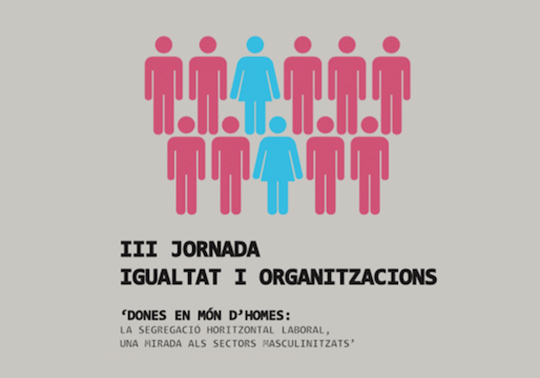Conference about women who work in masculinised sectors
- March 13rd, 2017

The Faculty of Social Sciences hosts this Tuesday, 14 march, the III Conference of Equality and Organisations which is focused this time on the subject ‘Mujeres en mundo de hombres: la segregación horizontal laboral, una mirada a los sectores masculinizados’. The situation of women in the port handling, female pilots or women in repair shops will be some of the issues to be addressed by experts. This event will take place at 15:30h at the Salón de Grados of the faculty.
The conference will count on the participation of the dean Ernest Cano; the vice-dean for Culture and Equality, Inmaculada Verdeguer; the director of the Equality Unit, Amparo Mañes; and professor Empar Aguado.
The programme can be consulted by clicking here.
At 16:00h some experts will talk about different professions. Marta Ibáñez will talk about ‘Mujeres polícia nacional’ (Women as police officers); Esmeralda Ballesteros about ‘Mujeres fotoperiodistas’ (Female photojournalists); Elisa García about ‘Mujeres corresponsales de guerra’ (Female war correspondents); Mar Maraira about ‘Mujeres en los talleres mecánicos’ (Women in the repair shops); Claudia Marocki about ‘Mujeres piloto de avión’ (Female pilots); and Empar Aguado about ‘Mujeres en la estiba portuaria’ (Women in the port of loading and unloading). Trini Moreno moderates.
A session will take place at 17:30h to talk about the experiences of three women who have positions of high responsibility in different areas of the public and private sphere. Therefore, the following women will participate in the section ‘En primera persona’: Empar Martínez Bonafé, general director of Public sector, Economic model and Heritage of the Valencian Parliament; Cándida Barroso, secretary of the Women of CCOO and Local Police of the City Hall of Valencia; and Eva García Bosch, director of Boluda Cargo Internacional. Professor Empar Aguado moderates.
The conference will end up with a round table about ‘Las prácticas y las políticas de gestión laboral’ (The practices and labour management policies) with Mar Vicent, secretary of the Mujer Federación Servicios a la Ciudadania of CCOO; José Jorge García, committee of SEVASA and vice-president of ITF Dock Workers; and Francisco Tirado, director of Human Resources of Boluda Corporación Marítima. Professor Josep Banyuls moderates.
Despite several changes experienced in the labour market and the strong incorporation of women to the labour market, the occupational segregation is still a persistent phenomenon.
The sexual division of the work has legalised the separation of areas and the dichotomy speech that is embodied in those labour sectors in which there are still wage, hierarchical and working conditions inequalities.
Despite the several public policies carried out in favour of the gender equality, there are still some barriers that make difficult for women to have access and work in high masculinised jobs.
The statistics reveal that men still dominate in the economic sector with higher socioprofessional recognition the same as those positions regarded as masculine should offer higher salaries and a low level of gender pay gap.
This is not happens only in our country. The occupational segregation by genres is a source of inefficiency and severity of the labour market and it is necessary to pay attention to this situation.
File in: Sociología del Trabajo , Igualtat , Facultat de Ciències Socials
















